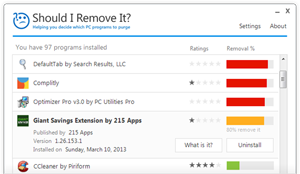Import table
advapi32.dll
GetSidSubAuthorityCount, OpenProcessToken, GetSidIdentifierAuthority, GetLengthSid, IsValidSid, LookupAccountSidW, CopySid, CloseEventLog, RegSetValueExW, QueryServiceStatus, OpenServiceW, OpenSCManagerW, CloseServiceHandle, ReportEventW, LookupAccountNameW, DeregisterEventSource, RegisterEventSourceW, RegNotifyChangeKeyValue, GetUserNameW, RegCloseKey, RegOpenKeyExW, RegQueryValueExW, InitializeSid, GetSidLengthRequired, AddAccessAllowedAce, AllocateAndInitializeSid, InitializeAcl, SetSecurityDescriptorDacl, InitializeSecurityDescriptor, EqualSid, GetTokenInformation, OpenThreadToken, GetSidSubAuthority, RegConnectRegistryW
kernel32.dll
IsBadReadPtr, Sleep, FormatMessageW, GetLocalTime, WaitForMultipleObjects, ExpandEnvironmentStringsW, InterlockedIncrement, SetEvent, GetEnvironmentVariableW, FreeLibrary, LoadLibraryExW, SetEnvironmentVariableW, LeaveCriticalSection, EnterCriticalSection, InterlockedDecrement, WaitForSingleObject, WaitForSingleObjectEx, GetModuleHandleW, GetVersionExW, GetComputerNameW, CreateFileW, DeviceIoControl, LoadLibraryA, CreateMutexW, SetFilePointer, ConnectNamedPipe, CreateNamedPipeW, WriteFile, DisconnectNamedPipe, OpenEventW, GetVersion, MultiByteToWideChar, GetCurrentProcess, CreateThread, FindFirstFileW, FindClose, GetUserDefaultLCID, FindFirstFileExW, GetSystemDefaultLCID, GetThreadLocale, FindNextFileW, TlsGetValue, TlsSetValue, TerminateProcess, InterlockedExchange, GetStdHandle, GetCurrentThreadId, TlsAlloc, DebugBreak, LoadLibraryW, IsValidCodePage, GetOEMCP, GetACP, GetCPInfo, GetCurrentProcessId, QueryPerformanceCounter, GetEnvironmentStringsW, WideCharToMultiByte, FreeEnvironmentStringsW, GetEnvironmentStrings, FreeEnvironmentStringsA, DeleteCriticalSection, OpenFileMappingW, InitializeCriticalSection, UnmapViewOfFile, MapViewOfFile, GetProcAddress, CloseHandle, GetLastError, GetCurrentThread, CreateEventW, PulseEvent, FileTimeToSystemTime, GetTimeFormatW, GetSystemTimeAsFileTime, GetTickCount, GetDateFormatW, LCMapStringW, LCMapStringA, InitializeCriticalSectionAndSpinCount, RtlUnwind, GetConsoleOutputCP, WriteConsoleW, ReadFile, GetLocaleInfoA, GetStringTypeA, GetStringTypeW, GetConsoleCP, GetConsoleMode, CreateFileA, GetModuleFileNameW, RaiseException, WriteConsoleA, SetStdHandle, FlushFileBuffers, HeapFree, HeapAlloc, HeapReAlloc, GetCommandLineA, UnhandledExceptionFilter, SetUnhandledExceptionFilter, IsDebuggerPresent, HeapCreate, HeapDestroy, VirtualFree, VirtualAlloc, ExitProcess, GetModuleFileNameA, TlsFree, SetLastError, HeapSize, SetHandleCount, GetFileType, GetStartupInfoA, ResetEvent, CreateFileMappingW
lz32.dll
LZClose, LZOpenFileW, LZRead, LZSeek
msvcrt.dll
DllMain
mytilus3.dll
GetCommonShellVersion3
mytilus3_worker.dll
GetAlerter, GetLogger
netapi32.dll
NetMessageBufferSend
ole32.dll
CoInitializeEx, CoUninitialize
rpcrt4.dll
RpcRevertToSelf, NdrServerCall2, RpcMgmtStopServerListening, RpcImpersonateClient, RpcServerUseProtseqEpW, RpcServerListen, RpcServerRegisterIf
shutil.dll
GetComponentPath
user32.dll
wsprintfW, LoadStringW, FindWindowW
vsevntui.dll
GetAlertingSeverityLimit
Export table
GetAnnVersion
GetInterface
VSE_GetInterface
VSE_GetInterface1
VSE_SetLoggerKey
VSE_StartLogging
VSE_StopLogging

